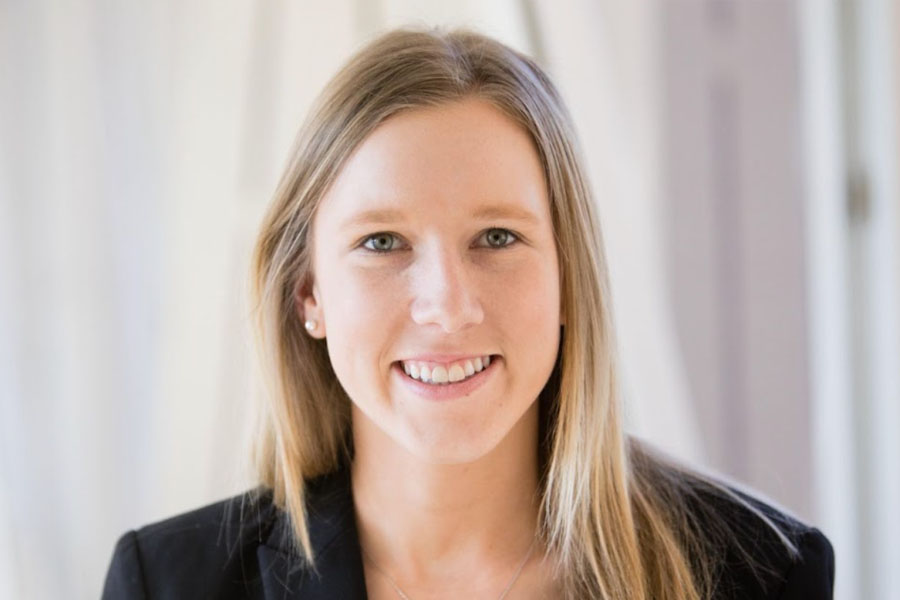What is your current role in health care?
“I am a Consultant in the Strategy and Business Advisory Division at ECG Management Consultants.”
What stands out as a favorite memory during your time as an MHA student?
“It was all the little moments that added up to a great experience. It was the classroom opportunities and site visits where we learned from different industry leaders and saw different venues of care. It was being a part of CLARION and putting on local and national case competitions. And it was getting to know my cohort and alumni, in and out of the classroom; trivia nights, baseball games, or just sitting and having lunch together.”
How has the MHA Program helped prepare you for your career?
“The MHA program provided exposure to senior leadership and opportunities for experiential learning. We had the chance to talk with different leaders, hear about their paths, and learn from their current work. Having that exposure in a classroom setting helped me feel comfortable speaking with higher-level executives. The other component would be the application of the Minnesota problem-solving method. That framework has helped me facilitate improvement initiatives with multidisciplinary teams in both the inpatient and outpatient settings. I have a method to get people from different backgrounds with varying perspectives all on the same page as we work to solve all types of problems.”
What challenges and opportunities will healthcare leaders encounter in the next 5-15 years? What skills will leaders need to be successful in light of these challenges and opportunities?
“I think one of them is going to be understanding what it means to provide health care in the right place and in the right way. Is it best for the patient to come into the hospital or can we safely provide them quality care in their home? How can we leverage technology to do this and how can we make the right approach affordable? The second one I’m really passionate about is consumerism. I believe consumers like health plan members or patients are not going to settle for traditional healthcare venues or experiences. They’re going to look for the same amount of information and transparency that they see in other industries for their healthcare options.
The first one is that they should take the time to seek input from their teams in a variety of ways. Leaders should be making sure that people feel comfortable, that they feel like they can speak up, and they have a say in the work they’re doing. I also think they’ll need to go beyond being open to change and transformation in this industry to being the ones driving it. And specifically, what I would like to see from more leaders, is learning from other industries, especially those who have leveraged technology or other innovations to reach their target markets and figure out solutions.”
If you could give one piece of advice to a current student, what would it be?
“I would say look for ways to apply what you’re learning in the classroom to experiences outside the classroom, every chance you get. Whether that is taking the problem-solving method and using it in a case competition, or it’s taking something you learned in one of your courses and applying it to an organization you volunteer with.”
Why is your class the best class ever?
“Our class had a great balance of competition and collaboration, with a good mix of humor.”

